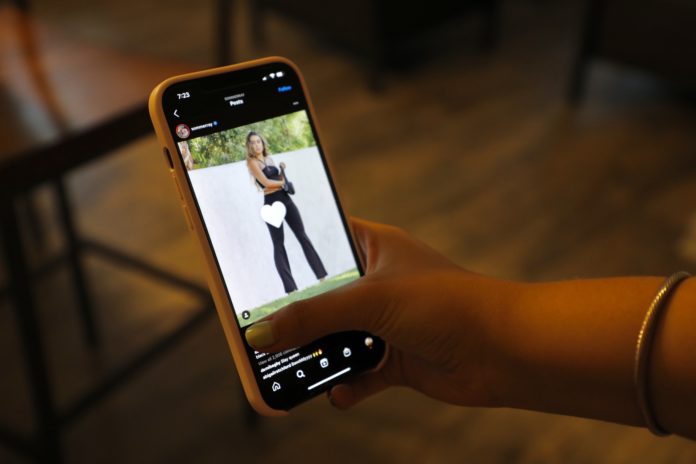
By Lexi Masarweh | Staff Writer
Studies have found that social media can negatively affect young adults’ mental health.
Dr. Christine Limbers, associate professor and graduate program director of clinical psychology, said in an email that there is a growing body of research that indicates social media can have a negative impact on mental health.
Social media apps like Instagram have caused many teenagers and young adults to have lower self-esteem, eating disorders, body dysmorphia and overall poor mental health. Facebook researchers found that one in three teenage girls’ body image issues got worse because of using the app.
Houston sophomore Mackenzie Mayes said it has definitely affected how she views herself and her perception of beauty.
“Unfortunately, beauty is a subjective thing to a lot of people, but I think social media portrayed this image that there’s only one right answer,” Mayes said. “I think that’s definitely reflected in my own life — looking a certain way, feeling a certain way and just trying to have it all together, when really, no one has it all together.”
Limbers said the more time someone spends on social media, the more it can affect them.
“There is research that suggests increased levels of social media use can lead to self-absorption and an unhealthy attempt to uphold a perfect online image,” Limbers said.
Social media apps like Instagram have increased feelings of anxiety, depression and loneliness. A recent study found that individuals who use social media are more likely to experience depression.
Limbers said heavy users of social media are at an increased risk of experiencing depression and feelings of inadequacy.
“Social media use can also serve as a distraction for many people, as constantly checking social media platforms can deter from concentrating in class or at work and engaging in meaningful face-to-face social interactions,” Limbers said.
Miami junior Dante Estrada said that social media has been a part of his life since he was 12 years old and that as he has gotten older, it has impacted everything from his social life to his sense of humor.
“Since coming to Baylor, I try taking breaks from social media when possible because I’ve noticed that I can get distracted from assignments and studying if I’m on social media too much,” Estrada said. “Taking breaks from social media allows me to refocus on what’s important and helps put things into perspective.”
Many young people blame social media platforms for the negative impact on their mental health.
According to the Pew Research Center, 69% of adults and 81% of teens in the U.S. use social media.
“My perception is that many people, including students, are using social media at increased rates,” Limbers said. “I read a study recently that said up to 70% of people in the U.S. have some type of social media presence. There are constantly new platforms being introduced, and often, people are going back and forth between and trying to keep up with different social media platforms like Facebook, Twitter, Instagram and TikTok, which can potentially feel exhausting.”





